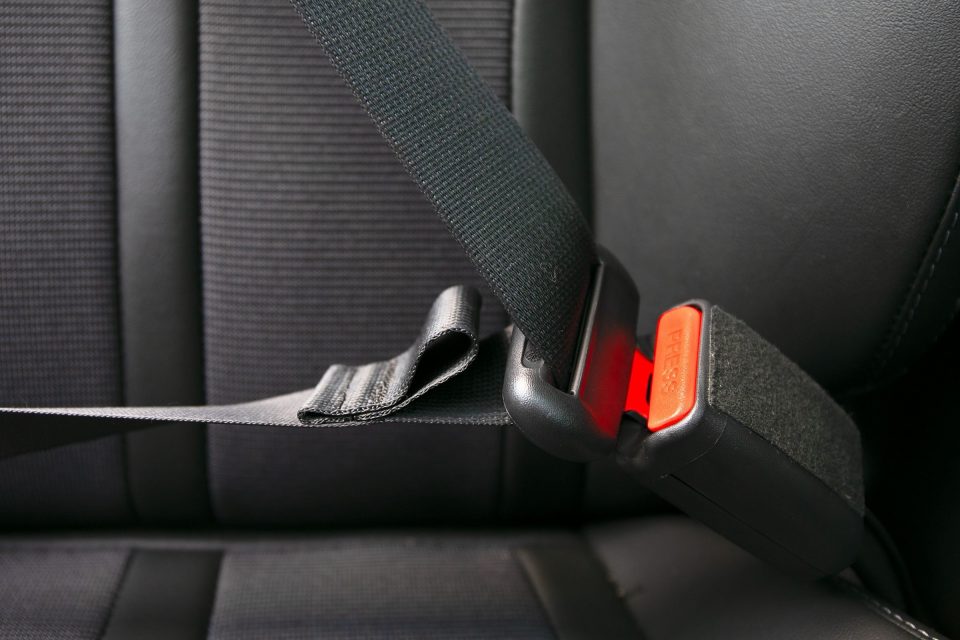Prep Roundup Week 2
September 16, 2015
Terrebonne sheriff and deputies sued over shooting of teen
September 22, 2015The Houma Police Department’s official policy regarding secondary employment of officers bars them from working details at establishments whose primary purpose is the service of alcoholic beverages, or where pornography is sold.
Those provisions, which appear in the regulations of other local law enforcement agencies, are regarded by nationally recognized police administration experts as appropriate and well advised.
But routine permission given for officers to work off-duty assignments on handshake agreements, the norm for HPD, is routinely seen as a bad practice, which can lead to problems. A prime example, most agreed, is the disagreement that arose last year after HPD officers refused to work the full four hours paid for by the non-profit Louisiana Wetlands Discovery Center at its annual Rougarou Festival.
Other local police agencies use written agreements for some details but not for others. HPD’s rules, however, are the only ones The Times found that contain a built-in contract that could easily be used.
After full briefings on the issues HPD faces in managing its extra-duty details, criminal justice experts agreed there is room for improvement if the department is to follow what are regarded as best practices available to the profession. HPD can start, they agree, by using written agreements.
“If this arrangement explicitly contradicts the department’s own policy requirements then, for sure, it is not advisable,” said Dr. Maria Haberfeld, chair of the Department of Law, Police Science and Criminal Justice Administration at John Jay College of Criminal Justice in New York, one of the nation’s leading police administration schools. “There are very few things that are more demoralizing than acting against your own written procedures. This is the door opener for many other types of misconduct.”
The HPD policy offers an out. The form must be used for a buyer of police services in order to be identified and defined as a client. But the permission of the police chief or parish president can overcome the deficiency.
Some criminal justice and police administration experts said direct payment of officers by detail clients – common for the HPD – in itself poses problems, Haberfeld does not see a problem “as long as they are paid for the actual work that was performed and there are no funny arrangements attached to this, like being someplace for three hours and being paid for four, and as long as they report these additional earnings and disclose the entities they work for, to avoid potential conflicts of interests.”
A split policy, with officers working details at the Houma-Terrebonne Civic Center or the Dumas Auditorium being paid through their regular payroll, while other venues pay officers directly, is not considered a best practice, experts said.
Tom Aveni, president of the New Hampshire-based Police Policy Studies Council, is among nationally-recognized police procedure consultants contacted by The Times for input on HPD’s detail situation. Aveni said a lack of contract use and problems such as those related to the Rougarou Festival indicate a “throwback” to decades ago, when departments took a “laissez-faire” approach to off-duty details, and not indicative of a best practices approach.
“The practice is for the client to go through the agency and have a contractual agreement with the agency,” Aveni said in an interview last week. “The agency determines the number of officers, the agency pays the officers, and in some cases agencies will charge extra if police cars are involved. It is all above board and the agency is in control, the agency is the arbiter of what happens. It should look like what you are getting is professional police service done consistently with the way police practices are done and not where you are a mercenary for the night. That’s important for appearances but it is also to avoid a problem where officers are not living up to their contracts.”
An officer working directly for a client and clocking in and out on their payroll system, Aveni said, “has a look of impropriety. It falls into the realm of gratuities. It is the same rationale because there is concern that if officers are taking from a given merchant then something will be expected in return. Having the payment from the agency to the officer eliminates some of that appearance of impropriety and is consistent with day-to-day operations and professional standards.”
Inaccurate time sheets, such as those turned in after the Rougarou Festival, Aveni said, further contribute to the problem.
“Somebody has to be responsible for police officers living up to their obligations,” Aveni said. “If officers signed a form saying they worked a 4-hour period and did not that is a problem. I see where some people might regard that as taking money for time you didn’t work. I am not going to tell you that is uncommon. But the client had a large crowd. When the officers wanted to leave, there is an obligation there, whether it is to direct traffic or regulate behavior.”
Vincent Rossmeier, a Tulane University specialist who worked on a report for the U.S. Department of Justice that critiqued the system of extra-duty details at the New Orleans Police Department, is among scholars who sees potential for abuse and poor public perception when individual officers work directly for a client rather than through the police department, with pay coming direct from the law enforcement agency.
“It’s a terrible practice,” Rossmeier said of direct payments to officers. “The officer can start extorting employees, telling them you need to pay me more or you are not going to get protection, Mafioso-type behavior. It allows for an officer to negotiate on their own. Everything needs to go through a centralized office. Officers could power broker themselves. It’s a big problem and obviously wrong.”
The 2011 DOJ report Rossmeier cited the NOPD’s management of extra duty details as a cornerstone of corrupt practices and behavior by officers that came nowhere near serving the public interest.
“There are few aspects of NOPD more broadly troubling than its paid detail system,” the DOJ report states. “Our interviews … revealed that the NOPD’s detail system was a significant contributing factor to both the perception and reality of NOPD as a dysfunctional organization.”
Houma’s detail deficiencies are nowhere near as complex, troubling or entrenched as those cited in New Orleans. But an objective analysis of HPD’s current system reveals shortcomings that have already had adverse effects.
Some U.S. cities reject the off-duty detail approach altogether, maintaining that the badge is sacred and should not be rented or sold. But the practice is growing nationwide, in an economy where police departments operate on shoestring budgets, which keep cop salaries low, and where private non-profits, rather than taxpayers, pick up the security tab for some public events.
“The model is very common,” said Jim Bueermann, president of the non-profit, Washington, D.C.-based Police Foundation, the nation’s oldest non-political law enforcement think tank. “There are needs for private people or events to have police officers present when a city can’t afford it.”
Bueerman, former chief of the Redlands, California, Police Department, said he had to make major changes in how details were managed at that agency, through much trial and error.










